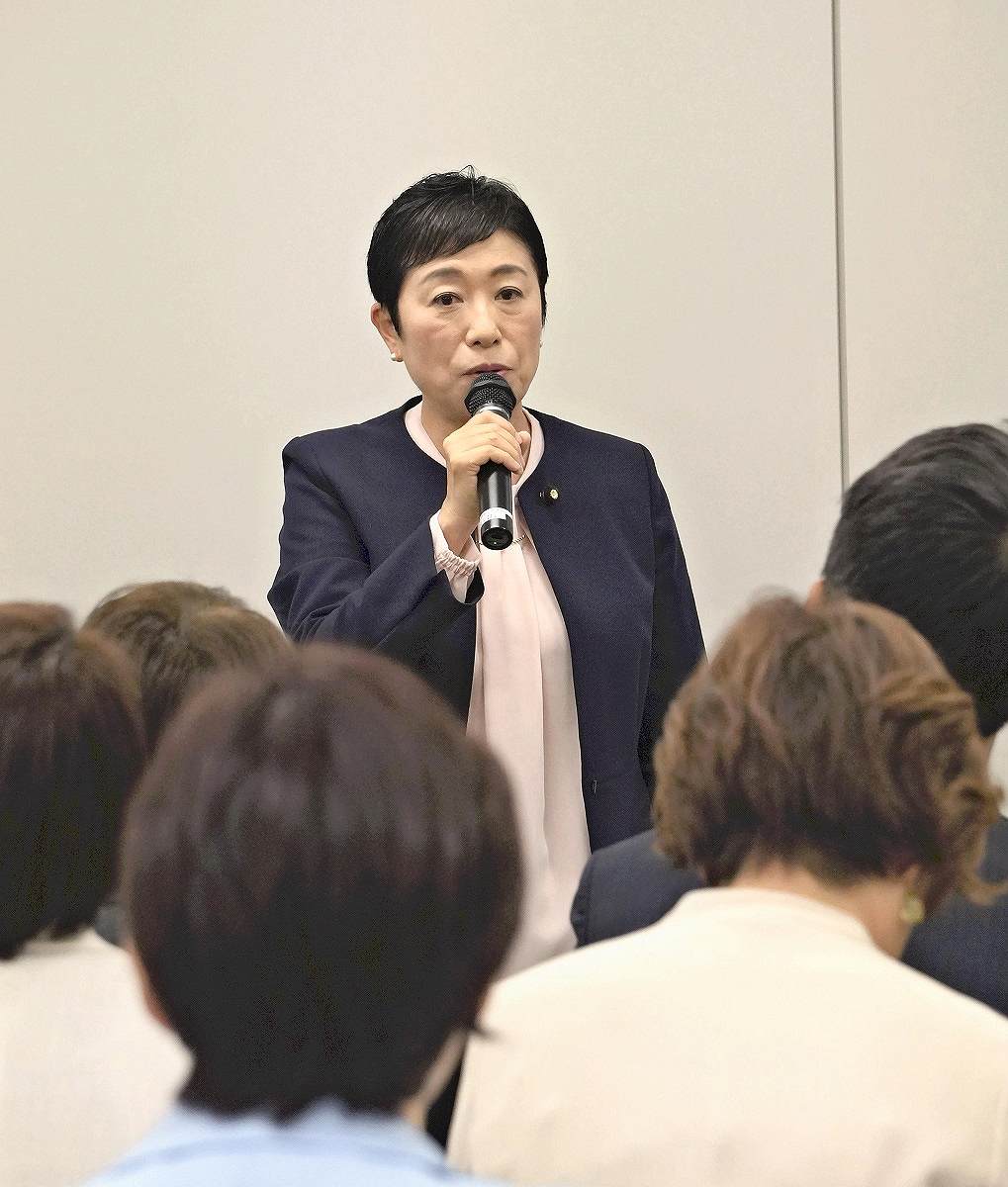CDPJ Pressures LDP To Accept Selective Surname System; Many In Diet Approve Separate Names For Spouses

The Constitutional Democratic Party of Japan’s Executive Deputy President Kiyomi Tsujimoto speaks at a meeting of the party’s Office for Gender Equality Promotion at the Diet Building in Tokyo on Wednesday.
21:00 JST, November 14, 2024
The Constitutional Democratic Party of Japan moved to shake up the Liberal Democratic Party over the introduction of a selective surname system for married couples in an intraparty discussion on the issue.
Having secured the chairmanship of the Judicial Affairs Committee of the House of Representatives, which serves as the forum for the relevant debate, the CDPJ hopes to lead the discussion in the Diet and win over Komeito and some LDP members who support the introduction of the system.
At a meeting of the party’s Office for Gender Equality Promotion, CDPJ Executive Deputy President Kiyomi Tsujimoto expressed the party’s intention to submit a bill soon to introduce the system.
“We want to call on Komeito and some LDP members to make this issue a national movement and work toward its realization,” she said.
As a move to make strategic preparations for the introduction of the system, CDPJ President Yoshihiko Noda has appointed party member Chinami Nishimura as chairperson of the committee.
A committee chair has significant authority in terms of holding committee meetings and managing proceedings.
In a video posted by the party on X on Nov. 8, Noda said the party very much wanted to secure the chairmanship of the Judicial Affairs Committee. X was formerly Twitter.
Regarding the selective surname system for married couples, he expressed hope, saying, “I think all opposition parties can agree and cooperate, and I think Komeito will probably support [the introduction of the system] as well, so this is a very powerful committee.”
There is strong opposition to a selective surname system within the LDP, particularly from the more conservative members.
However, some in the LDP are open to the idea. Former Election Strategy Committee Chairperson Shinjiro Koizumi and former digital minister Taro Kono, who both ran in the September party presidential election, have expressed a positive stance toward it.
Komeito clearly stated in its campaign pledges for the last lower house election that it would promote the introduction of the system, and the Democratic Party for the People and the Japanese Communist Party, among other opposition parties, also support its introduction.
Noda believes that if the CDPJ can bring together supporters from both the ruling and opposition parties, it will be possible to secure a majority in the lower house and pass the bill to introduce the system.
“We want to create an environment in which we can at least submit [the bill] at the beginning of next year’s ordinary Diet session,” Noda said in a television broadcast on Monday.
To pressure the LDP to pass the bill in the House of Councillors, a veteran CDPJ member said, “It is also possible to condition the passage of the bill on the approval of the budget for the next fiscal year.”
Yet, because revising the requirement that married couples have the same family name will have a significant impact on the view of the family and the way society is organized, a middle-ranking CDPJ member said, “Careful consensus-building should be sought, and this is not an issue that can be used as a bargaining chip with the ruling parties.”
Top Articles in Politics
-

Japan PM Takaichi’s Cabinet Resigns en Masse
-

Sanae Takaichi Elected Prime Minister of Japan; Keeps All Cabinet Appointees from Previous Term
-

Japan’s Govt to Submit Road Map for Growth Strategy in March, PM Takaichi to Announce in Upcoming Policy Speech
-

LDP Wins Historic Landslide Victory
-

LDP Wins Landslide Victory, Secures Single-party Majority; Ruling Coalition with JIP Poised to Secure Over 300 seats (UPDATE 1)
JN ACCESS RANKING
-

Producer Behind Pop Group XG Arrested for Cocaine Possession
-

Japan PM Takaichi’s Cabinet Resigns en Masse
-

Japan Institute to Use Domestic Commercial Optical Lattice Clock to Set Japan Standard Time
-

Man Infected with Measles Reportedly Dined at Restaurant in Tokyo Station
-

Israeli Ambassador to Japan Speaks about Japan’s Role in the Reconstruction of Gaza






















